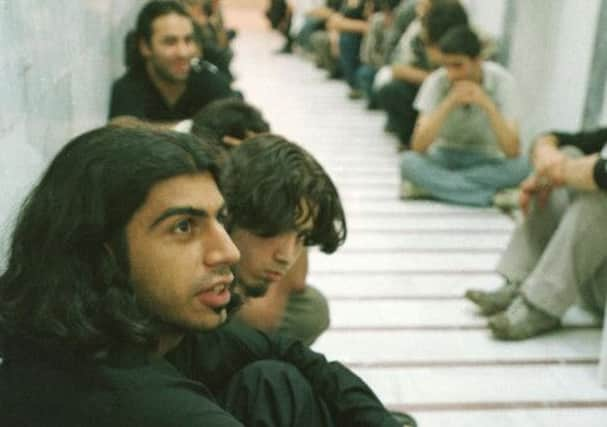Iran: Push to release high-profile figures


One twist of the key could help reboot the flailing, sanctions-hit economy. Another could ease relations with Iran’s Arab neighbours and the West. And a final turn could unlock the door to stalled nuclear negotiations with world powers.
“The first lock has been opened,” Mr Rowhani declared after his victory last month.
Advertisement
Hide AdAdvertisement
Hide AdNow many supporters also want a key to be used in a literal sense when he takes office in early August – to release an estimated 300 to 400 political prisoners in Tehran’s Evin prison, including about 30 to 50 women.
Most of all, they want Mr Rowhani to deliver on a promise to release the reformist leaders Mir-Hossein Mousavi and Mehdi Karrubi from more than two years of house arrest.
The two Green Movement leaders were candidates in the 2009 presidential elections. They condemned as fraudulent Mahmoud Ahmadinejad’s return to power, igniting months of street protests that were brutally crushed. Millions believe Mr Mousavi was the real winner of that “stolen” election.
He and Mr Karrubi were finally put under strict house arrest in early 2011, after calling for Iranians to demonstrate in support of pro-reform protests in Egypt and Tunisia. Mr Mousavi’s feisty wife, Zahra Rahnavard, is being held with him.
Mr Rowhani’s supporters constantly chanted for the pair’s release at his campaign rallies. When he won, jubilant crowds shouted: “Mousavi, Mousavi, congratulations on your victory.”
Days after being elected, Mr Rowhani was challenged at a news conference about his promise to free Mr Mousavi. He urged his supporters to be patient, pointing out that it was “not all up to the president”.
The centres of power behind the repression of the past four years – the judiciary, the intelligence ministry and the Revolutionary Guards – are outside Mr Rowhani’s authority and directly under the control of Iran’s unelected supreme leader, Ayatollah Ali Khamenei.
However, Mr Rowhani said he was “very hopeful that the atmosphere will change and make favourable grounds for meeting many of the demands that are being put forward”.
Advertisement
Hide AdAdvertisement
Hide AdDrewery Dyke, an Iran expert at Amnesty International, said: “While the president’s power is constricted, the presidency and the important mandate he achieved have a huge role in setting the ‘mood music’ … the mood Rowhani is creating is a positive one.”
Iran’s new president has called for an end to government interference in the private lives of people, an easing of the “security atmosphere”, greater freedom of expression and less state control of the internet.
He also plans to issue a civil rights charter which calls for equality of all citizens.
There are grounds for hope that Mr Rowhani, a mid-ranking cleric, will be able to deliver on some fronts, as despite his liberal stance, he is a long-serving and trusted regime insider.
The Ayatollah has endorsed his election victory, and Mr Rowhani has the backing of two influential former presidents, Akbar Hashemi Rafsanjani and Mohammad Khatami.
Even so, Mr Rowhani will have to step gingerly, and remain within his mandate, given potential opposition from disgruntled hardliners.
While Mr Rowhani has signalled he wants the release of the reformist leaders, he avoided naming them during his election campaign. This was seen as a sign of his caution, but also of his understanding of the realpolitik: the release of prisoners is decided by the judiciary, whose head is appointed by the Ayatollah.
Some experts suspect that Mr Rowhani might demonstrate his commitment to freeing political prisoners by first attempting to release less controversial figures.
Advertisement
Hide AdAdvertisement
Hide AdOne western diplomat said: “There are positive signs from Rowhani on the human rights front. But as with the nuclear file, we’ll be waiting to see if there’s real progress after his inauguration next month.”